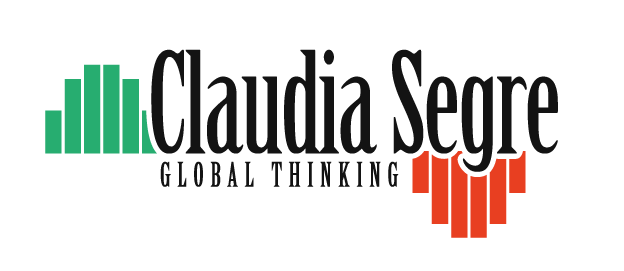24 August 2024 | by Claudia Segre
The latest episode of Guide to Finance produced for FIRSTonline by Ref Ricerche in collaboration with Allianz Bank Financial Advisors. Claudia Segre reveals how the lack of financial education is exacerbating inequalities for women and why it is crucial to act now to close this gap.
Yet the European Union’s Equality Strategy 2020-2025 quoted unequivocally that: ‘women and men, in all their diversity, should have the same opportunities to prosper and be economically independent, be paid equally for their work of equal value, have equal access to finance and receive fair pensions’.
Moreover, this principle can be found in Article 37 of the Italian Constitution, and despite this, even the most recent data from the OECD and the EIGE, the European Institute for Gender Equality, give us a worrying and contradictory picture where Italy still shows clear gender gaps in financial and digital skills and even in the World Economic Forum’s Global Gender Gap Index 2024 it loses another 8 positions, slipping to 87th place out of 146 countries, with a worsening in women’s economic participation.
Why is the economic and financial empowerment of women, first and foremost, and of all people, more generally, so important that it is the focus of the Women7 communiqué?
In the most recent debate, we have moved away from a one-way approach to a multidimensional one that invites us to analyse gender inequalities through income, wealth and control over one’s finances: thus enabling us to more accurately define the incidence and social value of financial independence, beyond cultural legacies and behavioural biases, behind which lie justifications for the delays in the widespread dissemination of a financial culture that is crucial for people’s well-being.
Going into the details of the working reality of women in Italy, the already low work participation of 53 per cent compared to European levels of 70 per cent is revealed in the INPS data as the tip of an iceberg. In fact, the data show how gender differentials (wage, income and pension) are the result of a horizontal and vertical segregation of women, to which is added a polarisation of women’s work in part-time work and in sectors where wages are lower.
And while schools, companies and government institutions are committed to strengthening the skills of male and female workers in order to overcome a spiral that is detrimental to the participatory economic action of women and girls, society appears to be increasingly digitalised and demanding in more technical and therefore enabling skills for a constantly evolving world of work, highlighting a close connection precisely between financial and digital skills, which have always been at the heart of the Global Thinking Foundation‘s mission to leverage the prevention of financial abuse and economic violence. Once again, it is European (Eurostat EU-GBV) and Italian data that show that one in four women has suffered financial violence at least once in her life and, according to SEA-UK, 77% of victims of this type of violence still suffer mental health problems related to financial stress that affect the victims’ personal and working serenity. Especially, when coercive and controlling behaviour is involved that prohibits them from working and/or controls family finances and personal income, which are typical situations of this form of violence.
Drawing the identikit of economic independence and reaffirming its being so central to the life of every saver/savings person should make us reflect on the repercussions we observe and listen to at our counters (https://www.gltfoundation.com/en/help-desk/), relating to the repercussions on physical and mental health, which then spill over into school, work and business participation, and thus into all spheres of active social participation that ultimately determine the development of a country and the well-being of all citizenship.
Another element that emerges as a result of the social impact analyses on financial education initiatives in the territory is the perception that certain social levers, such as taxation and support services for women linked to health care (their own and that of their children or elderly parents), are non-negligible elements of support and protection against the risk of poverty or social exclusion. Measures that seem unavoidable when wage differentials in the private sector in Italy are on average double those in the EU, and inevitably turn into pension gaps that reach 36% (INPS data), compared to 26% in the EU, and are crucial to strengthen financial independence by contributing to one’s family.
Conclusion
Across the EU, fewer women (19%) than men (34%) have a high level of financial literacy, which contributes to the gender gap in economic wealth.
These data must be interpreted in the broader context of gender inequalities in financial independence, with clear two-way effects. If women have fewer financial resources, they will be less able (and less willing to learn) to invest. In short, the trigger of a positive spiral between work participation, economic independence and financial inclusion revolves around knowledge, and precisely financial education, which leads to the most important result: to be free people, to be able to hope for a better future for themselves and their family and community, free from all kinds of violence, starting with economic violence, the most invisible but not the least harmful.


